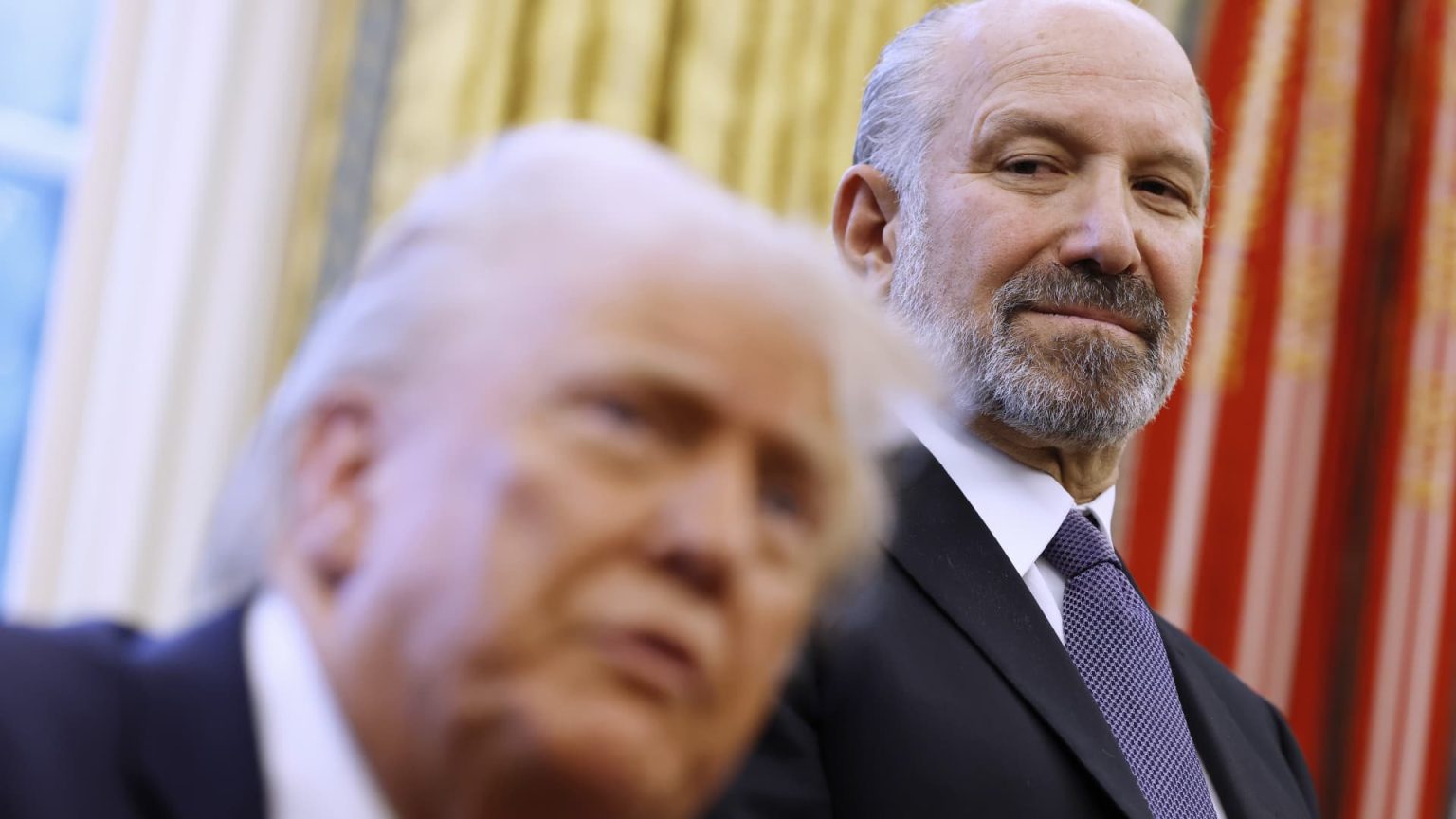In a significant development regarding trade relations, President Donald Trump is expected to announce tariff compromise deals with Canada and Mexico soon, as indicated by Commerce Secretary Howard Lutnick. The proposed agreements may involve the scaling back of the recently imposed 25% tariffs on imports from both countries. This announcement comes amidst a backdrop of sharp declines in the U.S. stock market, fueled by fears that Trump’s aggressive trade policies could trigger a detrimental trade war.
| Article Subheadings |
|---|
| 1) Understanding the Tariff Compromise |
| 2) Market Reactions to Tariff Talks |
| 3) Implications of Tariff Negotiations |
| 4) The Role of Officials in the Negotiation Process |
| 5) Future Steps in U.S.-Canada-Mexico Relations |
Understanding the Tariff Compromise
President Trump is on the verge of revealing compromise agreements regarding the controversial 25% tariffs imposed on goods imported from Canada and Mexico. Howard Lutnick, the U.S. Commerce Secretary, has stated that Trump is likely to announce these developments as early as Wednesday. The discussions have been framed as an effort to negotiate terms that would satisfy all parties involved, aiming to alleviate tensions that these tariffs have created.
The tariffs, initially reinstated after a brief pause, were implemented under the premise that both Canada and Mexico were not sufficiently addressing issues related to drug trafficking and crime that supposedly affect the U.S. However, Lutnick has emphasized that the president is inclined to find middle ground, suggesting a willingness to accept negotiations that could lead to softened terms rather than outright removal of the tariffs.
Market Reactions to Tariff Talks
The remarks from Lutnick were made amid a concerning backdrop for investors, as U.S. stock markets struggled to maintain stability, suffering significant declines for two consecutive days. Economic analysts have attributed the declining stock performance at least partially to widespread concerns that the trade policies under the Trump administration could evolve into a dire trade war, potentially harming various sectors of the economy.
Investor sentiment has created a volatile environment, where uncertainty about tariffs contributes significantly to market instability. The ongoing negotiations have left businesses and consumers uncertain about future costs and market access, prompting many in the business community to closely monitor potential announcements from the White House.
Implications of Tariff Negotiations
The implications of the tariff negotiations are complex and far-reaching. The proposed compromises would not only affect trade relationships directly but could have wider implications for bilateral relations among the U.S., Canada, and Mexico. The potential softening of tariffs could signal a move towards collaboration rather than confrontation, providing an opportunity for mutual financial benefit.
If Canada and Mexico agree to enhance their cooperation on drug trafficking issues, as per conversations mentioned by Lutnick, it might potentially lead to a more stable trade environment and restore investor confidence. This could lead to increased exports and imports, benefiting consumers with lower prices and expanded options.
The Role of Officials in the Negotiation Process
Throughout this turbulent period of negotiations, high-ranking officials have played a crucial role in mediating discussions and shaping the outcomes of U.S. trade policies. Lutnick has indicated that both Canadian and Mexican officials have been proactive in reaching out to their U.S. counterparts to find solutions that would alleviate tariff pressures.
Communications have intensified as both parties attempt to demonstrate their willingness to negotiate and adapt, which is evident in Lutnick’s comments about ongoing dialogue. This level of engagement suggests a broader strategy where all three nations are looking for collaborative approaches to address trade disputes and associated challenges.
Future Steps in U.S.-Canada-Mexico Relations
Looking ahead, the relationships between the U.S., Canada, and Mexico may undergo significant changes depending on the outcomes of these negotiations. Should the anticipated compromises be announced as Lutnick expects, it may lead to renewed optimism concerning trade agreements and economic cooperation in North America.
Furthermore, success in these talks could pave the way for future regulatory adjustments and collaborative initiatives, potentially fostering a more resilient framework for addressing trade-related challenges. It remains to be seen how these negotiations will unfold, but experts remain cautiously optimistic about possibilities on the horizon.
| No. | Key Points |
|---|---|
| 1 | President Trump is poised to announce tariff compromises with Canada and Mexico. |
| 2 | The proposed agreements may involve modifying the recent 25% tariffs on imports. |
| 3 | Market fears of a trade war have caused significant stock market volatility. |
| 4 | Negotiations involve intense discussions to reach a middle ground between countries. |
| 5 | Future relations and economic cooperation could be positively affected by successful negotiations. |
Summary
In summary, the anticipated announcement from President Trump regarding tariff compromises with Canada and Mexico holds significant potential to reshape trade dynamics in North America. The comments made by Commerce Secretary Howard Lutnick underscore the willingness of officials to find a collaborative approach to resolve ongoing tariff disputes. As the situation develops, stakeholders from various sectors will be keenly observing how these negotiations unfold, with hopes for a more favorable economic environment for all parties involved.
Frequently Asked Questions
Question: What are the current tariffs imposed on Canada and Mexico?
Currently, there is a 25% tariff on various imports from Canada and Mexico, reinstated recently by the Trump administration amidst concerns over drug trafficking and crime.
Question: Why are these tariffs being reconsidered?
The tariffs are being reconsidered due to ongoing negotiations that aim to find a compromise that would satisfy both the U.S. and its neighboring countries.
Question: How might these negotiations impact the economy?
Successful negotiations could lead to reduced tariffs, benefiting consumers with lower prices while potentially stabilizing the stock market and promoting increased trade activity.


